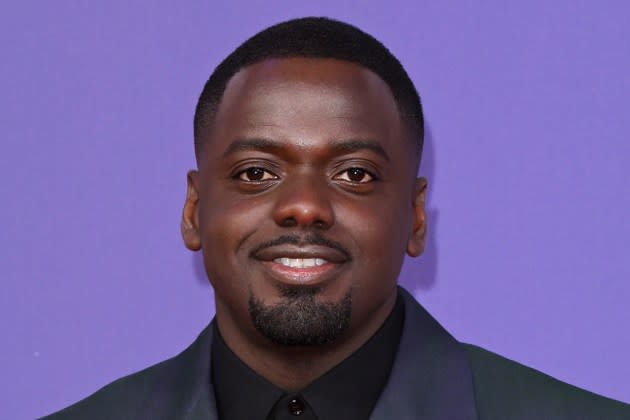Daniel Kaluuya Tells Why He’s “Way Happier” in Industry After Feeling Like His “Identity Was in Other People’s Hands”

Daniel Kaluuya says he’d “become what people around me wanted from me” in the industry, but says he’s now “way happier” after becoming more honest in his career.
The co-writer and co-director behind Netflix’s upcoming film, The Kitchen, recently spoke to GQ Magazine about how his latest film project encapsulates the kind of art that matters to him, as well as why he changed how he navigated his career following his work on Nope.
More from The Hollywood Reporter
The Judas and the Black Messiah star said that he is now “way happier” than he was two years ago, specifically the period following his 2021 Oscar win, after realizing he wasn’t being honest as a person and artist. “It really felt like, look at me: I’ve got everything that you’re supposed to get. I’ve got everything that people would die for,” Kaluuya says. “And then I wasn’t happy.”
After Jordan Peele’s critical and blockbuster hit Nope, Kaluuya began to feel the inklings of what he was being told to do by his team “asked him to betray” two traits he prized himself on: “his own spontaneity and instinct,” GQ‘s Adam Baidawi wrote.
“I’d become what people around me wanted from me — what people had paid for, as opposed to who I wanted to be, and who I actually am or what I wanted to do. I felt caged. I didn’t feel creative,” he told the magazine. “It felt like, ‘Oh, you’re a serious actor.’ Am I? I mean, I was in Mitchell and Webb.”
That’s when the multihyphenate began communicating his feelings more to those around him, saying “things out loud that I’ve never said out loud, and because they didn’t come immediately, people thought it had come out of nowhere. But I was like, ‘No, I’ve always felt like this.’ I just wasn’t real — not their fault, it was me.
“You’ve gotta take accountability for your shit, bro. I didn’t keep it real, from 18 to then. I agreed to certain things that meant that I was containing myself, and contained how I felt,” he continued. “My identity was in other people’s hands.”
During a Q&A following a special screening of The Kitchen in New York on Wednesday night, Kaluuya further remarked on his overall growth over the last decade it took to make the film he co-directed with Kibwe Tavares and co-wrote with Rob Hayes and Joe Murtagh.
“I wasn’t really that honest as a man, and I think me growing in that helped me become a better writer. More truer,” he told the screening audience. “I started to take criticism and advice. Ask for help. That all limits your growth. So, like, the more I grew as a man, the more it was easier to make this happen.”
During his sit down with GQ, Kaluuya recalled an experience while doing awards campaigning for Get Out that exemplified how the then 28-year-old actor was being shaped too much by the environment around him. The actor says he walked into a room to select his award show look, but the outfits were all “restrained,” and mostly in blacks, navies and charcoals.
“Why the fuck am I wearing a business suit? You’re dressing for the occasion, as opposed to dressing for yourself. It’s a symptom of it. How you do the dress code is how you attack the industry, how you attack the game,” he said. “I wasn’t articulating who I was; I wasn’t being who I was.”
At another point in the cover story, Kaluuya discusses why he’s been conservative with making himself the face of ad campaigns, noting that it would result in him giving up a certain level of fame or power. “I said no to them. I didn’t understand it. If it’s not a fuck yeah, it’s a no,” Kaluuya told GQ.
There were also offers that did not seem like a fair valuation of where he is in his career. That includes one ad where the brand wanted to cast him “against two white actors that hadn’t achieved as much as me,” with Kaluuya stating he wanted to appear alone.
“I just feel like I have a certain position. It’s not like, ‘Oh, I’m so cool.’ I’m just like, ‘I don’t like that.’ It’s got to be because of what it means, because I want to be out there and make sure I’m representing right,” he said. “I don’t take money just to take money. Not all money is good money. I want to make some great things that make people feel something and then go back to living my life. Know what I’m saying? Tell the truth and go home.”
Best of The Hollywood Reporter